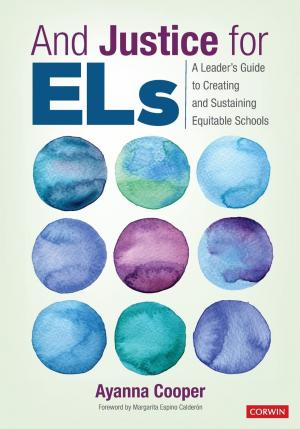Best Practices for Evaluating ELL Educators
 In this special Colorín Colorado video project, learn how the educators of English language learners (ELLs) and their students benefit when evaluators are familiar with best practices for ELLs. A discussion guide and related resources are also included.
In this special Colorín Colorado video project, learn how the educators of English language learners (ELLs) and their students benefit when evaluators are familiar with best practices for ELLs. A discussion guide and related resources are also included.
Acknowledgements
 This project was produced with the generous support of our founding partner, the American Federation of Teachers. To learn more about the original AFT initiative that inspired this project, see this related blog post.
This project was produced with the generous support of our founding partner, the American Federation of Teachers. To learn more about the original AFT initiative that inspired this project, see this related blog post.
Related Resources
Best Practices for Evaluating ELL Educators: Discussion Guide
 This discussion guide accompanies our featured video, Best Practices for Evaluating ELL Educators. You are welcome to use this guide in PLCs, coaching settings, and school- and district-level conversations about topics such as:
This discussion guide accompanies our featured video, Best Practices for Evaluating ELL Educators. You are welcome to use this guide in PLCs, coaching settings, and school- and district-level conversations about topics such as:
- teacher evaluation in general
- ELL educator evaluation
- professional development and support for ELL educators
Note: We encourage educators to share this project and related resources with their colleagues, especially special education colleagues and other specialists who may also be looking for ways to enhance the expertise of the evaluators who are conducting observations in their field.
Q&A with Areli Schermerhorn, Peer Evaluator for ENL/Bilingual Education
Learn how a peer evaluator whose primary responsibility is to observe ELL and bilingual educators is thinking about evaluation as a tool for professional growth and what she recommends to both teachers and administrators regarding ELL educator evaluation.
Evaluating ALL Teachers of English Learners and Students With Disabilities
 Teacher evaluation can be a valuable tool for evaluators and teachers alike. But it should never be used in a “one-size-fits-all” manner, especially when evaluating all teachers who work with the nation’s growing numbers of English learners (ELs) and students with disabilities. Drawing on a focused array of authoritative research on supporting the success of ELs and students with disabilities, case studies, and action plans, the authors detail:
Teacher evaluation can be a valuable tool for evaluators and teachers alike. But it should never be used in a “one-size-fits-all” manner, especially when evaluating all teachers who work with the nation’s growing numbers of English learners (ELs) and students with disabilities. Drawing on a focused array of authoritative research on supporting the success of ELs and students with disabilities, case studies, and action plans, the authors detail:
- Four principles for inclusive teacher evaluation of diverse learners that are compatible with the Danielson and Marzano frameworks
- Sample specialized “look-fors” that evaluators can use and adapt to recognize effective teaching of ELs and students with disabilities
- Strategies for coaching teachers of ELs and students with disabilities
And Justice for ELs
 Dr. Ayanna Cooper, a former U.S. Department of State English Language Specialist, shares how best to translate today’s federal mandates into actionable steps for ensuring the civil rights of our nation’s multilingual learners. Topics include:
Dr. Ayanna Cooper, a former U.S. Department of State English Language Specialist, shares how best to translate today’s federal mandates into actionable steps for ensuring the civil rights of our nation’s multilingual learners. Topics include:
- information students' civil rights
- planning English language development services
- staffing and resource allocation
- teacher evaluation
- family engagement
Promoting Success for Teachers of English Learners through Structured Observations
One of the challenges around evaluating educators who teach special populations is that many teacher evaluation rubrics don’t include criteria that are aligned to best practices for those student populations. A new project addresses that gap by sharing new tools that align ELL best practices to two widely used teacher evaluation and support systems: the Danielson Framework for Teaching and the Marzano Focused Teacher Evaluation Model. This project was a collaboration between the Council of Chief State School Officers, the American Institutes for Research, and Education Northwest. ELL expert Dr. Diane August is a co-author of the report.
The working groups also prepared an overview report to support these tools: Promoting Success for Teachers of English Learners Through Structured Observations.
